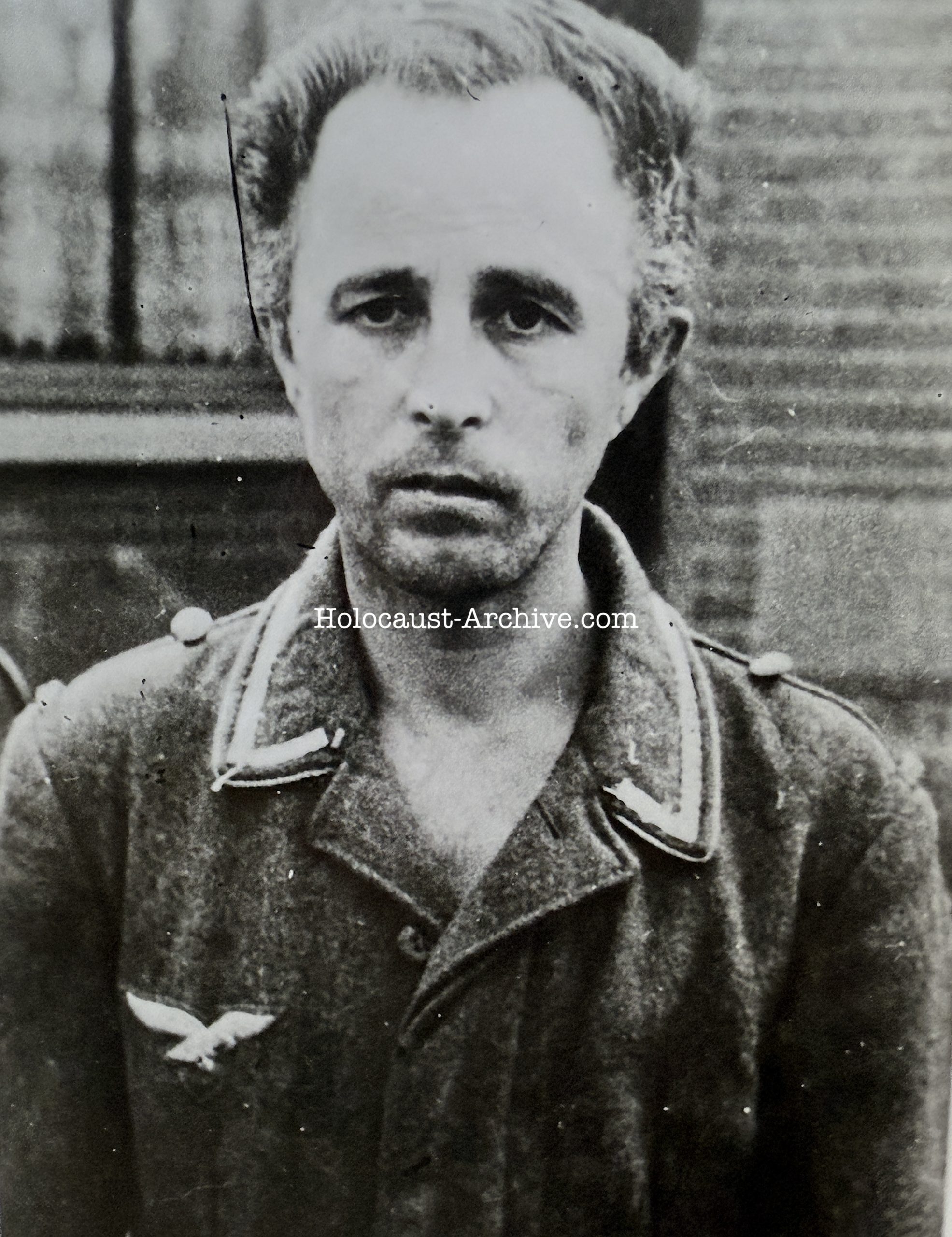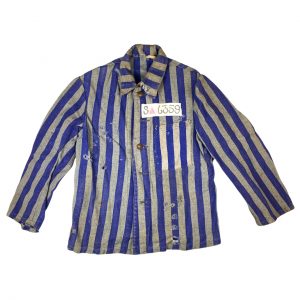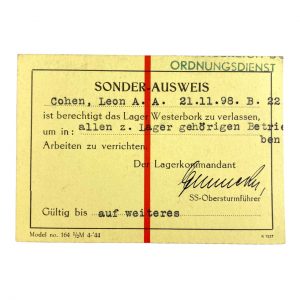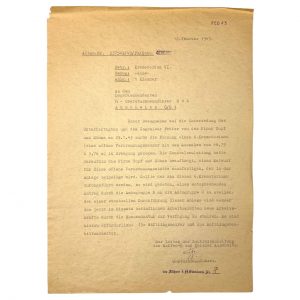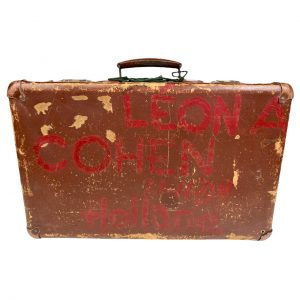Amersfoort – Joseph Johann Kotalla
Joseph Johann Kotalla, shortly after his arrest, photographed in Bergstraat in Amersfoort.
He tried to conceal his SS identity by wearing a Luftwaffe uniform.
Joseph Johann Kotalla was born on 14 July 1908 in Schwelm, Germany.
He grew up in an authoritarian environment and had poor health.
A traffic accident in his youth caused brain damage, which was later linked by psychiatrists to mood swings, impulsive behaviour, and violent outbursts.
In the 1930s, he joined the National Socialist movement and became a member of the SS.
During the Second World War, Kotalla was transferred to the Netherlands, first to the cell blocks of the Scheveningen prison, and later to the Polizeiliches Durchgangslager Amersfoort (Police Transit Camp Amersfoort), where he served as deputy commander and administrative head.
Although formally responsible for paperwork, he played a central role in the camp’s daily operations.
Among prisoners, he became a terrifying figure.
Kotalla was known for his unpredictable and sadistic behaviour.
Prisoners reported that he would lash out without warning, hitting people with his fists or kicking them with his boots in the notorious “Kotalla kick.”
He forced prisoners to drill endlessly until exhaustion, sometimes in freezing cold or scorching heat.
He also used his dog to intimidate or attack inmates.
His enjoyment in witnessing pain and humiliation made him one of the most feared tormentors in the camp.
After the liberation, Kotalla was arrested and tried in 1948.
The tribunal found him guilty of murder, assault, and co-responsibility for the deaths of dozens of prisoners. He was sentenced to death, but in 1951 this sentence was commuted to life imprisonment because experts deemed him partially insane.
Kotalla was placed in the Koepel Prison in Breda, together with three other German war criminals, the so-called “Breda Four.”
While his fellow prisoners were granted clemency or released over the years, Kotalla remained behind bars.
Politically and socially, his case was sensitive: many saw him as an incorrigible sadist who should never be freed.
On 31 July 1979, Joseph Kotalla died in his cell.
